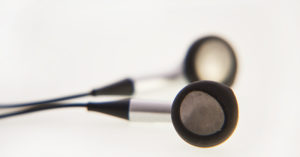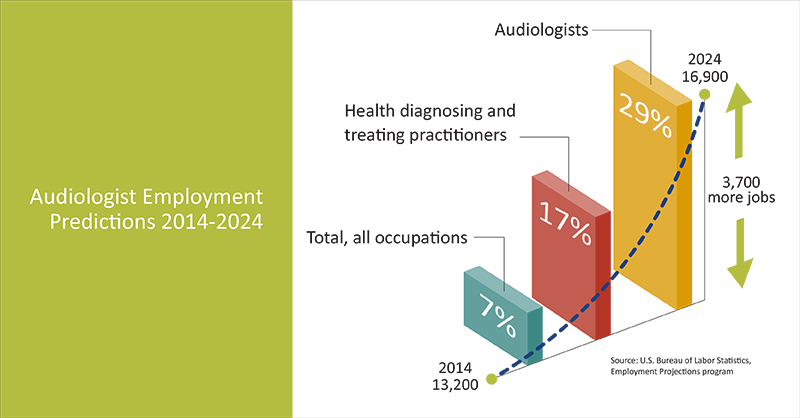
Your hearing is probably not something you have thought about since you took hearing tests in elementary school, but hearing loss is a very real concern. It’s not just a problem for older people either. In the United States, the prevalence of hearing loss in adolescents increased by 31% between 1988 and 2006, according to the National Health and Nutrition Examination Survey.
Why the Increase in Hearing Loss?
While most people brush off the occasional concert as too infrequent to have much of an effect on hearing, some of the most common contributors to hearing loss may be a part of your current lifestyle without you even realizing it. For instance, did you know that the following can contribute to hearing loss?
- Using ear buds: The rising popularity of this type of headphone has made it necessary to increase volume levels since they don’t cancel out noise like the old style of headphones did.
- Riding in convertible cars: It’s really fun to drive with the top down, but doing so on the highway can subject your ears to as much noise as a loud lawnmower.
- Taking certain medications: Certain antibiotics, pain medication and platinum-based chemo all have side effects of hearing loss. The benefits may outweigh the risks, but you should be aware of them.
- Smoking: Nicotine constricts blood vessels, and the small vessels in the ear can be affected dramatically — just another reason to quit smoking!
- Illness: Those affected by diabetes, sickle cell anemia or a few chronic ear infections are at a higher risk for hearing loss. Those with diabetes can lose hearing little by little, making them less aware of what is going on than if they experienced a sudden hearing loss.
- Riding public transportation: If you take a subway or train on a regular basis, you are also increasing your risk for hearing loss. It’s not just riding on trains, but the noises at large subway stations like Union Square in New York City, that can take their toll.
- Simply working at your job: The risk for hearing loss at work depends greatly on your occupation. For firemen, construction workers and factory workers, the noise level is significantly higher than for an office worker. Proper protective gear will go a long way in reducing the effect on your hearing.
In addition to damage to the ear from listening at a high volume, buildup of earwax or a ruptured eardrum can also be contributors to hearing loss. Proper care of all three of the main areas of the ear, all of which are very sensitive, will help ensure good hearing for years to come.

How Can You Reduce Your Own Hearing Loss?
You can’t regain hearing after losing it, so preventative measures are crucial. If listening to loud noises, be sure to take time afterwards to rest your ears and give them a break. The recommendation is to listen to music via ear buds or headphones at no more than 60 percent of the volume for no more than 60 minutes a day. Most Americans need to drastically reduce their intake of recreational noise.
- Watch the volume on electronics, and especially be cautious of young children listening at a level that is too loud to have a conversation over.
- Use headphones to block outside noise instead of increasing the volume. Also consider noise cancelling headphones if you have a hard time concentrating.
- Use ear protection at concerts and other loud events, just like the fans do at NASCAR events.
- Use ear protection when working in a noisy environment and make sure to use them correctly.
- Don’t put anything in your ears, not even to clean them.
Promote Ear Health as an Audiologist
Audiologists are the health care experts behind the science of hearing loss and its treatment. If you think you might enjoy a career in communication sciences and disorders, one that focuses on helping people with hearing and balance problems, this could be a career for you.

Audiologists specialize in the non-medical diagnosis and management of disorders of the auditory and balance systems, including:
- Identifying and assessing hearing and balance problems.
- Rehabilitating persons with hearing and balance disorders.
- Preventing hearing loss.
Clinical audiologists work in a variety of settings and can specialize in pediatrics, geriatrics, balance, cochlear implants, hearing aids, tinnitus and auditory processing, among other specializations.
Career growth for audiologists is on the rise. The Bureau of Labor Statistics is predicting a 29 percent growth in the specialty by the year 2024. Because the field is relatively small, that will result in over 3,500 new jobs. Career progression and the demand for jobs are very encouraging, and offer strong motivation to explore this career today.
